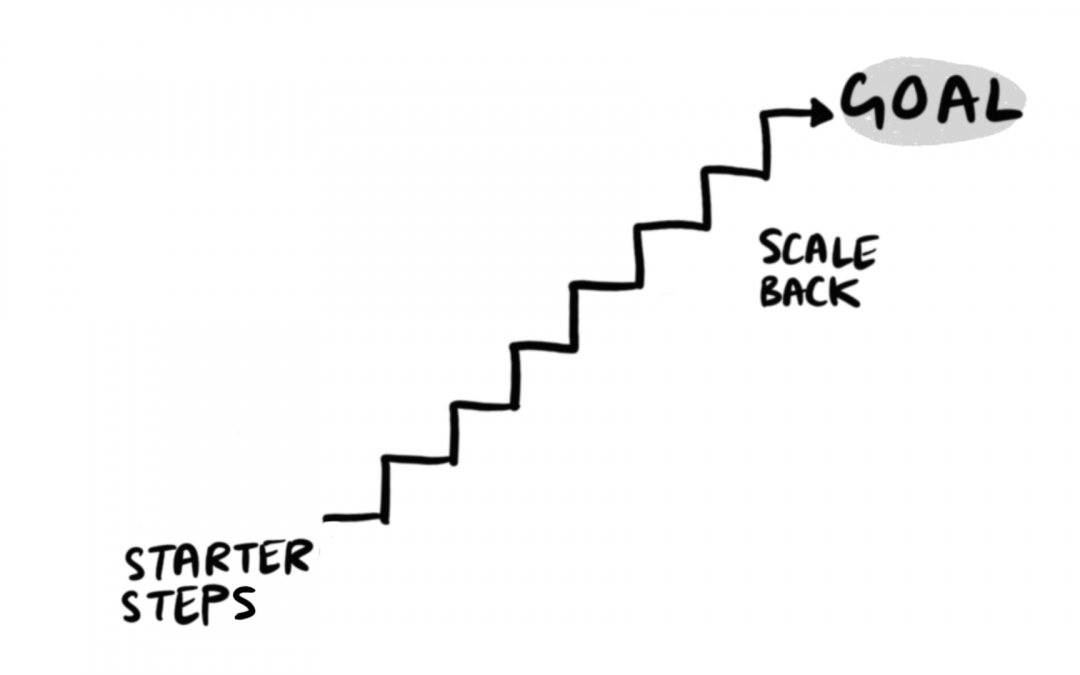
What’s to blame? Who takes the credit? Why every writer needs to understand their locus of control
Who or what do you credit when your writing is going well? Who or what do you blame when your writing is going badly? Either way, understanding where you are on the locus of control will help you reach better conclusions about yourself, your writing – and what you can...

Try the opposite: conflicting approaches to writing productivity
Writing advice is confusing. There’s no one sure-fire approach to productivity – there are many, and to make it worse writing tips are often contradictory and damn right conflicting. So, whether you want to go large or small, stick or quit, single or multi-task – try...

Stop trying so hard to write and get yourself a routine instead
Writing routines, plans and strategies work for writers because they reduce the mental energy involved in finding the time to write or making yourself focus. They help you do the thing you want to do with less stress and anxiety - and long term that helps you enjoy...

Your writing productivity questions answered
Over the years we've answered many hundreds of questions from all types of writers. On the surface, a scholarly writer might not have much in common with a playwright, but underneath they are often thwarted by the same constraints on their time, plagued by similar...

4 questions every perfectionist writer should ask themselves to get unstuck
You want to feel proud of your writing - of course you do. High standards are admirable. Attention to detail is necessary. But as Voltaire said, "the perfect is the enemy of the good". When diligence tips over into perfectionist nit picking, guilt and regret can...

5 ways to find your writing focus in testing times
If you're safe and well, lockdown might seem like the perfect opportunity to write - all that time you never had - but in reality, keeping your focus can be tough. There are new interruptions and we get distracted by anxious thoughts. If you want to write there are...

7 step training plan for running a personal writing sprint
The idea behind a writing sprint is to move your project forwards quickly over a short, intense burst of time. A sprint's not so very different from a writing splurge or binge, but it's more focussed and less migraine-inducing. It follows a direction and has some...

Beat distraction: writing productivity tactics to try when you can’t concentrate
Distraction is a problem at the best of times. Writers can struggle to focus when there's so much competing for our attention. Now, in an uncertain environment, when people are anxious, juggling new responsibilities and ever-changing priorities it's harder than ever...

Rescue your writing relationship when you’ve fallen out of love
Remember when you loved your writing project? When your writing relationship was fresh and exciting. You’d bounce out of bed longing to spend time with it. Now you can’t bear to be in the same room. It’s become a slog. You’re not even sure it’s a project worth saving...

How small steps lead to great progress
Your writing dreams are big, but the way to achieve them is to think small. If you want to build a new routine or change your behavior, the research says you need to start tiny. Here’s how to use small steps to build great progress. You’ve got a great idea for a book,...

Prioritise your writing – exercises to help make writing matter and make it happen
You’re busy. You’ve got a job, family commitments, a life that fills your calendar from dawn until dusk. But you’ve also got dreams - a creative idea, a book you want to write - or you’ve got plans for an article you need to write, a blog to update. If your writing...

10 characteristics of highly productive writers
In our workshops we’re often asked what we mean by ‘productive writers’. I’m not surprised. ‘Productivity’ has some iffy connotations. It conjures up mental images of factory production lines or some dead-eyed corporate efficiency drives. No wonder writers baulk at...
